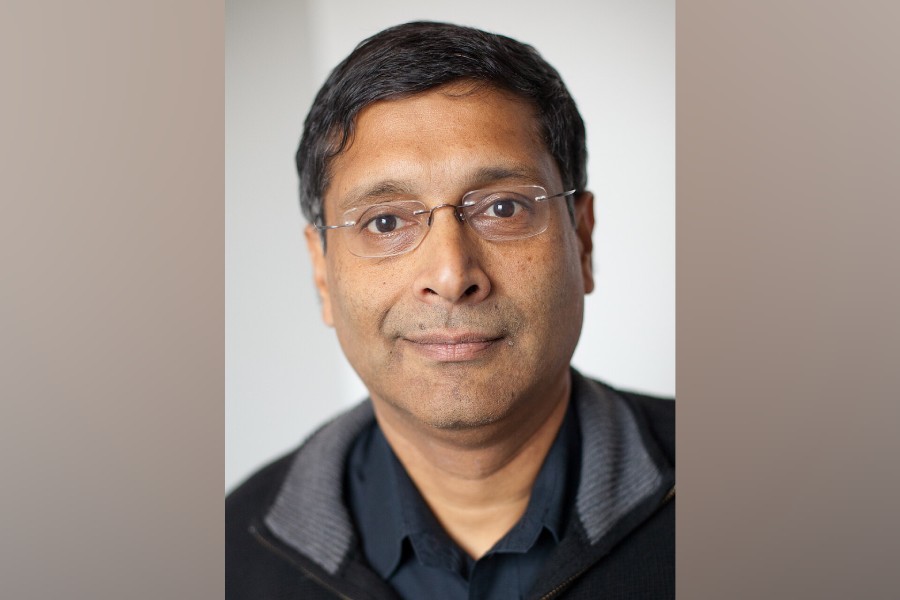
New Delhi: An Italian scientist who has spearheaded efforts to solve the so-called "Darwinian paradox" of why homosexuals or lesbians have not become extinct from human populations on Thursday welcomed the Supreme Court's verdict decriminalising adult, consensual homosexual acts.
Andrea Camperio-Ciani, professor of evolutionary psychology at the University of Padova, is among researchers whose studies have bolstered evidence for genetic factors underlying gay or lesbian traits, which scientists assert are natural variations in human sexual orientation.
"If being born Indian is not a crime, if being born white, or black, or brown, or albino is not a crime, being homosexual should also not be a crime," Camperio-Ciani told The Telegraph in a telephone interview after learning about the court's ruling.
The Indian Psychiatric Society - an association of doctors - had earlier this year launched a campaign through social media platforms and public meetings to assert that gay and lesbian traits are natural variations of sexual orientation and to provide science-driven arguments for decriminalising homosexuality.
Camperio-Ciani, who began his research career in 1980 studying Rhesus macaques near Shimla, has spent the past 15 years accumulating evidence that the same genes associated with gay or lesbian traits also enhance fecundity, or the ability to produce children, in women.
In the process, his research has resolved a longstanding evolutionary puzzle: because gay men or lesbian women in homosexual relationships cannot reproduce, any genes that promote homosexuality should have over the centuries been eliminated from human populations. Some called it a Darwinian paradox.
"It is not a paradox any more," said Camperio-Ciani, who found through a 2004 study - based on 98 homosexual and 100 heterosexual men - that the mothers and aunts of homosexual men were more likely to have more children than the mothers or aunts of heterosexual men.
The findings suggested that the same genes may have different outcomes in men and women. A man with these genes could more likely be gay while women with these genes - through mechanisms still unknown - were likely to have more children.
Six years ago, Camperio-Ciani, collaborating with his wife and scientific colleague Elena Pellizari, had published a research paper showing how the fecundity of maternal grandmothers and aunts was much higher in the families of gay men than heterosexual men.
Earlier this year, the scientists published research with similar results on lesbians.
Drawing on a larger sample size - 487 lesbian and 808 heterosexual women - the study, published in Human Nature, found that fecundity - or child-producing capacity - was significantly higher in both the paternal and maternal sides of lesbians' families than in heterosexual women's families.
The study extended to lesbianism an explanation for the paradox that the scientists had first observed in 2004 with the gay trait. "The increased fecundity in families with these genes counterbalances the loss of child-bearing capacity in gay men and lesbians," Camperio-Ciani said.
Medical experts point out that genes by themselves do not explain all the observed sexuality, and that cultural and social experiences also influence sexual behaviour. "It is likely a mix of genetic, social and psychological factors," said T. Satyanarayana Rao, professor of psychiatry at the JSS Medical College, Mysore.
Multiple studies have over the years established that people with gay or lesbian orientation do not have any psychological or physical dysfunctions in judgement, stability or their vocational capabilities.
"It is a normal variation of human sexuality," said Rao, who is also secretary of the psychiatry and human sexuality section of the World Psychiatric Association.
The evidence for a biological basis for sexual orientation has grown over the years. Biologist Dean Hamer at the US National Institutes of Health had in the early 1990s detected an elevated rate of homosexuality in the maternal line of gay men and suggested that genetic factors on chromosome X favour homosexuality.
But scientists may also be closing in on the genes associated with sexual orientation. In 2008, Camperio-Ciani had collaborated with mathematicians and predicted that at least two genetic factors underlie male homosexuality - one somewhere on chromosome X, the other on some other chromosome.
In 2015, psychiatrist Alan Sanders and his colleagues at the Northshore University in the US had identified two regions of the human genome - one on chromosome X called Xq28, the other on chromosome 8 - that appear to influence male sexual orientation, just as predicted by Camperio-Ciani.
The public education campaign by the Indian Psychiatric Society is driven by concerns that some parents continue to approach doctors, including psychologists or psychiatrists, with requests to "convert" the sexual orientation of their children.










